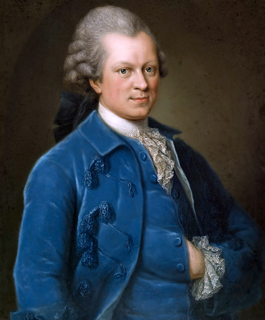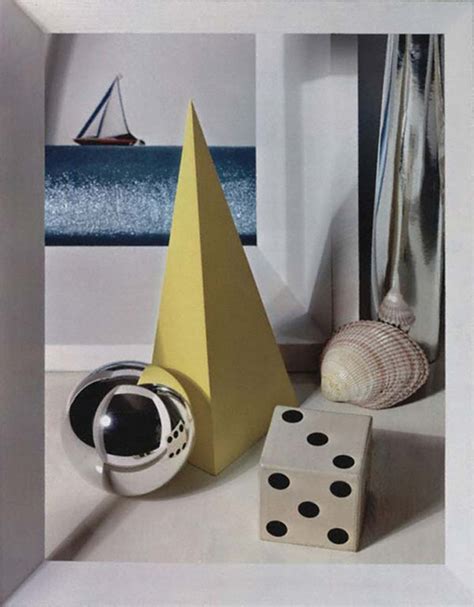A Quote by Andrei Tarkovsky
The director’s task is to recreate life, its movement, its contradictions, its dynamic and conflicts. It is his duty to reveal every iota of the truth he has seen, even if not everyone finds that truth acceptable. Of course an artist can lose his way, but even his mistakes are interesting provided they are sincere. For they represent the reality of his inner life, of the peregrinations and struggle into which the external world has thrown him.
Related Quotes
In every system of theology, therefore, there is a chapter De libero arbitrio. This is a question which every theologian finds in his path, and which he must dispose of; and on the manner in which it is determined depends his theology, and of course his religion, so far as his theology is to him a truth and reality
When a man finds that it is his destiny to suffer, he will have to accept his suffering as his task; his single and unique task. He will have to acknowledge the fact that even in suffering he is unique and alone in the universe. No one can relieve him of his suffering or suffer in his place. His unique opportunity lies in the way in which he bears his burden.
When a man finds that it is his destiny to suffer, he will have to accept his suffering as his task. . . . He will have to acknowledge the fact that even in suffering he is unique and alone in the universe. No one can relieve him of his suffering or suffer in his place. His unique opportunity lies in the way in which he bears his burden.
Ideas are powerful things, requiring not a studious contemplation but an action, even if it is only an inner action. Their acquisition obligates each man in some way to change his life, even if it is only his inner life. They demand to be stood for. They dictate where a man must concentrate his vision. They determine his moral and intellectual priorities. They provide him with allies and make him enemies. In short, ideas impose an interest in their ultimate fate which goes far beyond the realm of the merely reasonable.
Clearly the hardest thing for the working artist is to create his own conception and follow it, unafraid of the strictures it imposes, however rigid these may be... I see it as the clearest evidence of genius when an artist follows his conception, his idea, his principle, so unswervingly that he has this truth of his constantly in his control, never letting go of it even for the sake of his own enjoyment of his work.
It has always been my belief that the true artist, like the true scientist, is a researcher using materials and techniques to dig into the truth and meaning of the world in which he himself lives; and what he creates, or better perhaps, brings back, are the objective results of his explorations. The measure of his talent--of his genius, if you will--is the richness he finds in such a life's voyage of discovery and the effectiveness with which he is able to embody it through his chosen medium.
Pathology has made us acquainted with a great number of states in which the boundary lines between the ego and the external world become uncertain or in which they are actually drawn incorrectly. There are cases in which parts of a person's own body, even portions of his own mental life - his perceptions, thoughts and feelings -, appear alien to him and as not belonging to his ego; there are other cases in which he ascribes to the external world things that clearly originate in his own ego and that ought to be acknowledged by it.
The true value of man is not determined by his possession, supposed or real, of Truth, but rather by his sincere exertion to get to the Truth. It is not possession of Truth by which he extends his powers and in which his ever-growing perfectability is to be found. Possession makes one passive, indolent and proud. If God were to hold all Truth concealed in his right hand, and in his left only the steady and diligent drive for Truth, albeit with the proviso that I would always and forever err in the process, and to offer me the choice, I would with all humility take the left hand.
Man is more than his environment. It is from the innate quality of the Spirit in him, his inner storehouse, that he draws those ideas, his intuitions, which unify his perceptions of the external world instantaneously with a value which is qualitative and not quantitative, and which he embodies in the works of his culture - those achievements which belong not only to one particular time but to all times, and mark the path of his upward progress.
Art is life seen through man's inner craving for perfection and beauty--
his escape from the sordid realities of life into a world of his imagining. Art accounts for at least a third of our civilization,
and it is one of the artist's principal duties to do more than merely record life or nature.
To the artist is given the privilege of pointing the way and inspiring towards a better life.



































